第38章
However, Mrs. Amphlett has the preference if she 'died of grief at the precise time when the female vision appeared to his lordship,' which makes it odd that her daughters should then have been revelling at Pitt Place under the chaperonage of Mrs. Flood. We are also informed (on no authority) that Lord Lyttelton 'acknowledged' the ghost to have been that of the injured mother of the three Misses Amphlett.
Let not the weary reader imagine that the catena of evidence ends here! His lordship's own ghost did a separate stroke of business, though only in the commonplace character of a deathbed wraith, or 'veridical hallucination.'
Lord Lyttelton had a friend, we learn from 'Past Feelings Renovated' (1828), a friend named Miles Peter Andrews. 'One night after Mr.
Andrews had left Pitt Place and gone to Dartford,' where he owned powder-mills, his bed-curtains were pulled open and Lord Lyttelton appeared before him in his robe de chambre and nightcap. Mr.
Andrews reproached him for coming to Dartford Mills in such a guise, at such a time of night, and, 'turning to the other side of the bed, rang the bell, when Lord Lyttelton had disappeared.' The house and garden were searched in vain; and about four in the afternoon a friend arrived at Dartford with tidings of his lordship's death.
Here the reader with true common sense remarks that this second ghost, Lord Lyttelton's own, does not appear in evidence till 1828, fifty years after date, and then in an anonymous book, on no authority. We have permitted to the reader this opportunity of exercising his acuteness, while laying a little trap for him. It is not in 1828 that Mr. Andrews's story first appears. We first find it in December 1779--that is, in the month following the alleged event. Mr. Andrews's experience, and the vision of Lord Lyttelton, are both printed in 'The Scots Magazine,' December 1779, p. 650.
The account is headed 'A Dream,' and yet the author avers that Lord Lyttelton was wide awake! This illustrates beautifully the fact on which we insist, that 'dream' is eighteenth-century English for ghost, vision, hallucination, or what you will.
'Lord Lyttelton,' says the contemporary 'Scots Magazine,' 'started up from a midnight sleep on perceiving a bird fluttering near the bed-curtains, which vanished suddenly when a female spirit in white raiment presented herself' and prophesied Lord Lyttelton's death in three days. His death is attributed to convulsions while undressing.
The 'dream' of Mr. Andrews (according to 'The Scots Magazine' of December 1779)* occurred at Dartford in Kent, on the night of November 27. It represented Lord Lyttelton drawing his bed- curtains, and saying, 'It is all over,' or some such words.
*The magazine appeared at the end of December.
This Mr. Andrews had been a drysalter. He made a large fortune, owned the powder-mills at Dartford, sat in Parliament, wrote plays which had some success, and was thought a good fellow in raffish society. Indeed, the society was not always raffish. In 'Notes and Queries' (December 26, 1874) H. S. says that his mother, daughter of Sir George Prescott, often met Mr. Andrews at their house, Theobalds Park, Herts. He was extremely agreeable, and, if pressed, would tell his little anecdote of November 27, 1779.
This proof that the Andrews tale is contemporary has led us away from the description of the final scene, given in 'Past Feelings Renovated,' by the person who brought the news to Mr. Andrews. His version includes a trick played with the watches and clocks. All were set on half an hour; the valet secretly made the change in Lord Lyttelton's own timepiece. His lordship thus went to bed, as he thought, at 11.30, really at eleven o'clock, as in the Pitt Place document. At about twelve o'clock, midnight, the valet rushed in among the guests, who were discussing the odd circumstances, and said that his master was at the point of death. Lord Lyttelton had kept looking at his watch, and at a quarter past twelve (by his chronometer and his valet's) he remarked, 'This mysterious lady is not a true prophetess, I find.' The real hour was then a quarter to twelve. At about half-past twelve, by HIS watch, twelve by the real time, he asked for his physic. The valet went into the dressing- room to prepare it (to fetch a spoon by other versions), when he heard his master 'breathing very hard.' 'I ran to him, and found him in the agonies of death.'